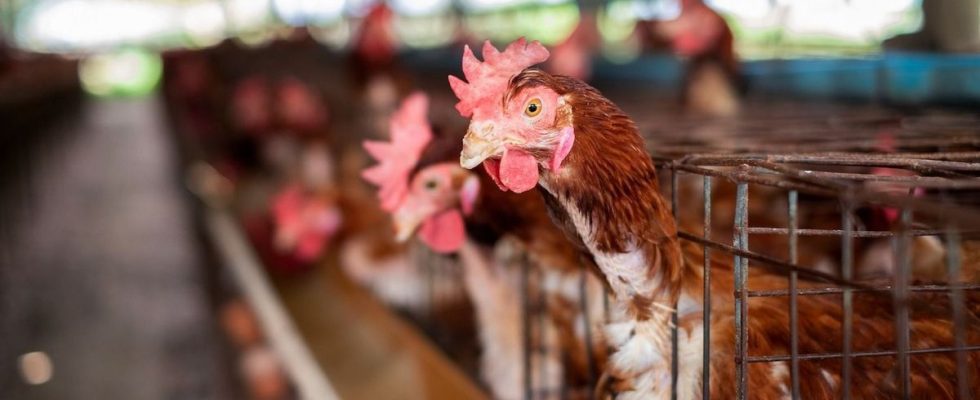Published on
Updated
Reading 3 min.
Farms contaminated by avian flu are increasing all over Europe. However, should we fear a massive return of the virus in France, and above all, on our plates? What are the health risks ? Doctissimo answers you.
Once again, avian flu makes the French tremble. Cases of contamination have been recorded in several European countries, but also here, in two turkey farms.
Several outbreaks of contamination have been recorded in France
In its latest monitoring bulletin, the French animal health epidemiological surveillance platform reveals several cases of contamination on farms in Hungary, Bulgaria, but also in Denmark, the Netherlands, Belgium and Germany.
If the number of cases has increased, the situation is partly explained by the “passage of migratory birds“, like common cranes.
These millions of wild birds cross the northern countries, then France before wintering in the Iberian Peninsula or Africa. However, the possibility of spreading the virus by these migratory birds is high.
Therefore, the Ministry of Agriculture decided yesterday to raise the risk level linked to avian flu.at its maximum” in France.
This measure was taken “considering the confirmation of several outbreaks in breeding” in France, and “the dynamics of infection in migration corridors and the possibility of dissemination of the virus by these migratory birds“, confirms the ministry in a decree.
The last French farms affected by the influenza A virus? One in Morbihan, and the other in the Somme, both detected at the end of November.
Avian flu: what measures have been taken?
In infectious outbreaks, turkeys were killed. 26,400 poultry were slaughtered on the Sailly-Flibeaucourt farm (Somme). In these areas, the movement of poultry and other captive birds is prohibited.
Surveillance is also reinforced on farms, “by carrying out self-checks which are made obligatory by prefectural decree“, specifies the government.
Several other measures aimed at strengthening the protection of livestock are taken, such as:
- The confinement of poultry which usually live outside;
- Mandatory equipment for vehicles intended for the transport of waterflies older than three days;
- The ban on racing pigeon competitions;
- Restrictions on the transport of calling birds;
- The ban on gatherings of poultry and captive birds;
- The ban on the release of game birds from the Anatidae family.
However, is there a risk of contamination via poultry?
According to the authorities, there is no evidence of human beings being infected with avian flu following the consumption of poultry or eggs.
And this, for several reasons: on the one hand, the sector is extremely monitored (poultry present for slaughter undergo a veterinary inspection before and after their death in order to remove sick animals from the chain) and on the other hand because the virus disappears when cooked and is not transmitted through food but only through the respiratory route.
“Conventional cooking, greater than or equal to 70ºC in all parts of the food, inactivates it (clear cooking juices and no visible pink flesh). Well-cooked poultry can therefore be eaten without danger.“, confirms the International Network of Food Safety Authorities (World Health Organization).
Thus, the virus currently present in the territory is not transmissible to humans through the consumption of poultry, eggs, or foie gras.
In addition, animals infected with bird flu die quickly on farms.
What about cross-species contamination? (dog Cat)
According to veterinarian Bruno Pelletier, interviewed earlier this year on the subject, there is no need to worry about our four-legged animals.
“While inter-species transmission is possible, transmission from animals to humans is much rarer.“, he assures. Moreover”The prefecture and veterinary services are implementing very strict measures“, says the expert.
